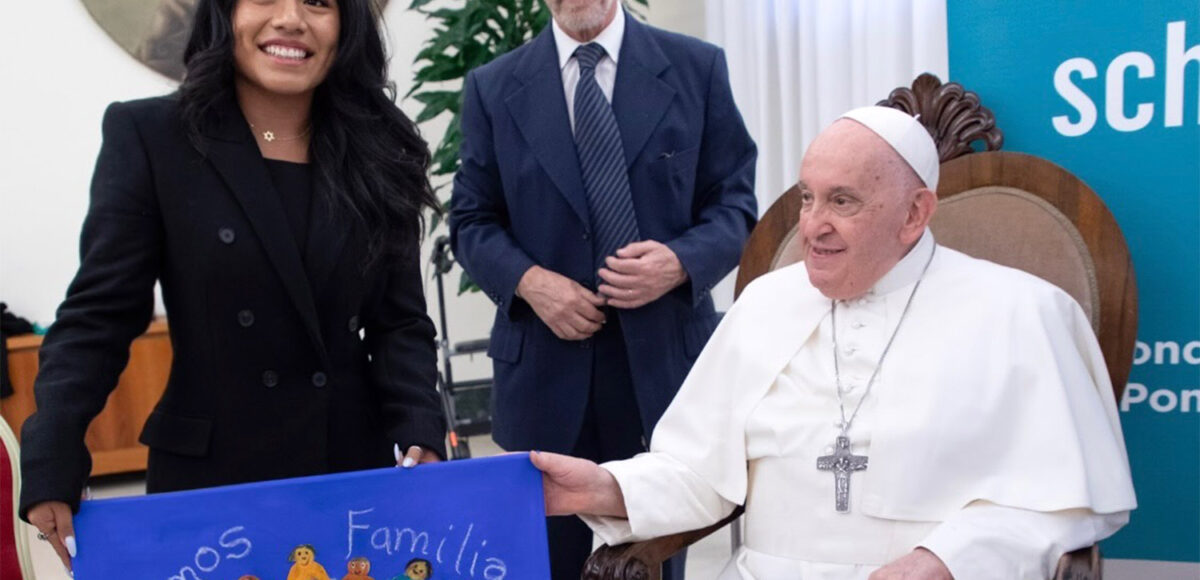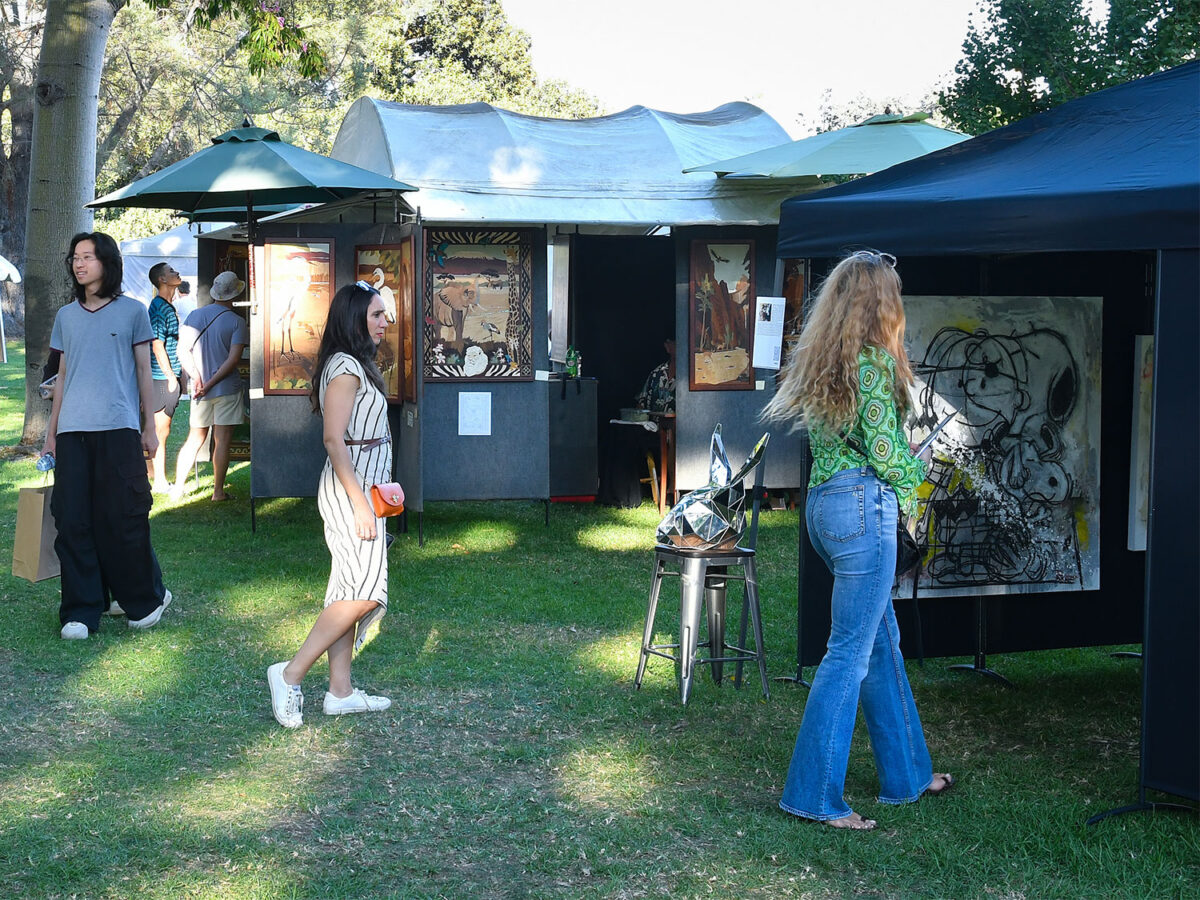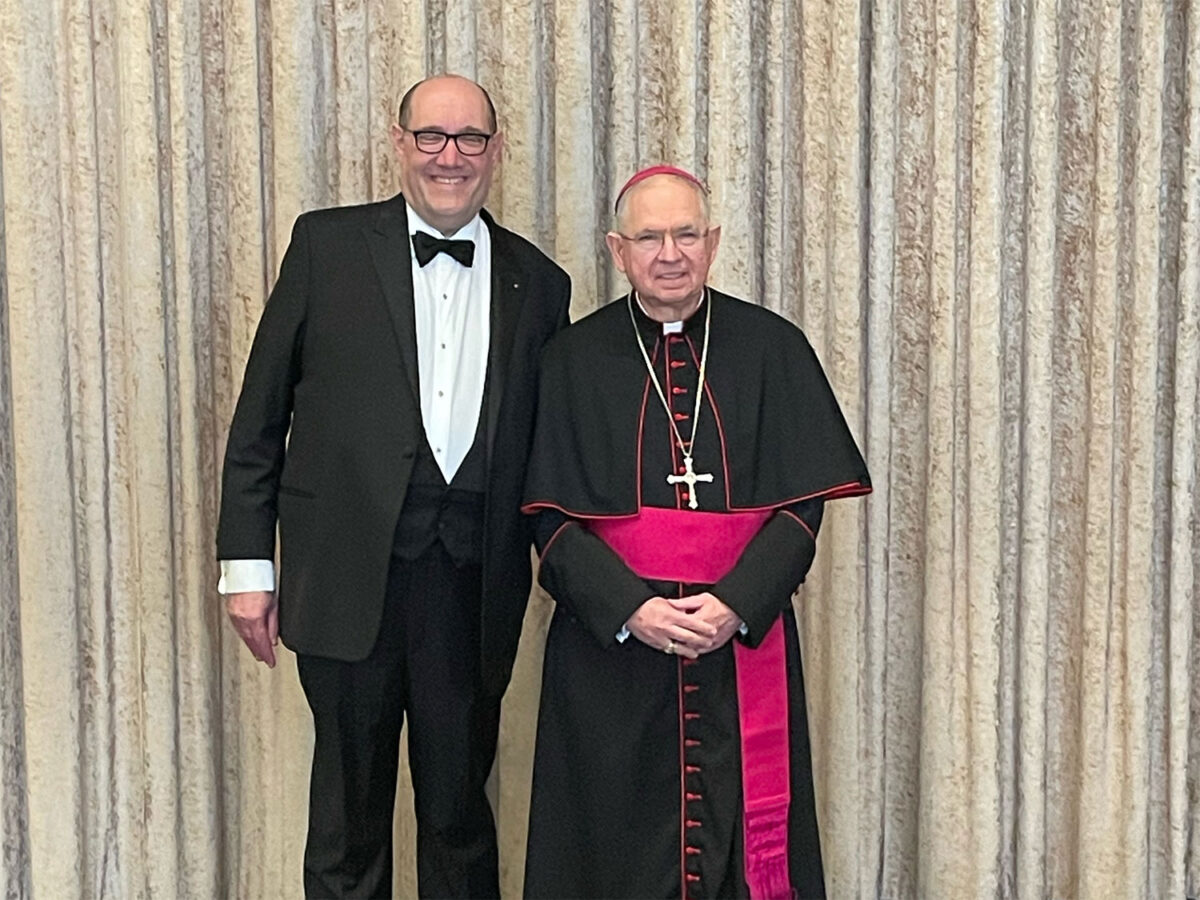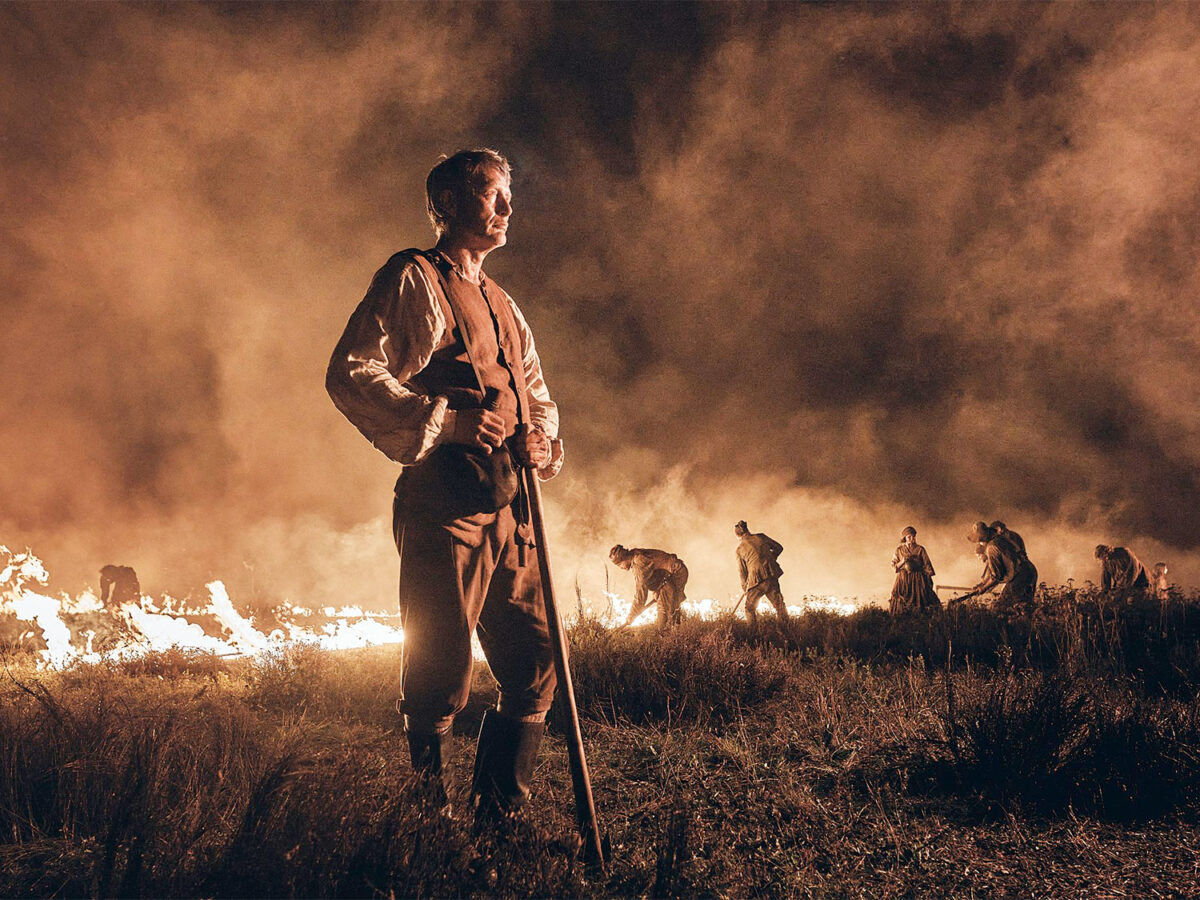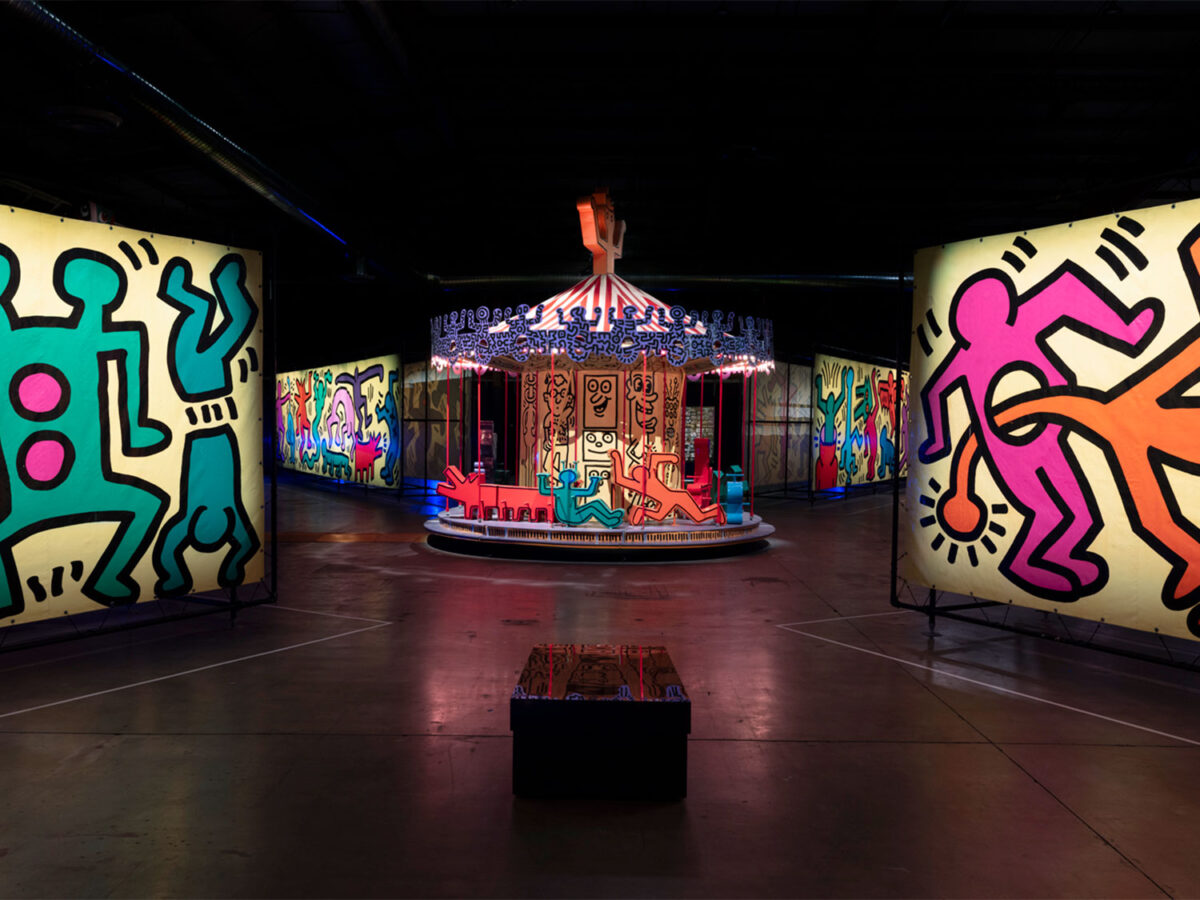As a child growing up in the Flores neighborhood of Argentina, Jorge Mario Bergoglio loved to play soccer in a square by his home. Many times, he and his friends would have use of only a ball of tied-up rags, known as a “pelota de trapo.” But that didn’t dampen his enthusiasm for the game, the national sport of his own country and beloved around the world.
The ball of rags—and what it stood for—would inspire Bergoglio to advocate for youth of all backgrounds throughout his life’s journey.
In 2013, that journey took him from Buenos Aires to Rome, where the world now knows him as His Holiness Pope Francis. The spiritual leader of the world’s 1.4 billion Catholics, and a revered figure on the world stage, he has never lost his devotion to young people.
In fact, while still serving as Archbishop of Rome, he created an educational foundation dedicated to that purpose. The nonprofit Scholas Occurrentes (Latin for “schools for the encounter”) serves a mission to provide young people of every background with critical leadership and citizenship tools to help them thrive.
This year, a new initiative under the Scholas umbrella carried that vision into the sports realm. Launched successfully in Argentina, Italy, Mozambique and Spain, the program has now made its U.S. debut in Los Angeles. Its name: Pelota de Trapo, after the makeshift soccer balls of the Pope’s youth, still used by young people around the world.
“The Holy Father as an international religious leader is concerned about isolation that students experienced after the pandemic. Scholas and the Pelota de Trapo program, through sports and civic engagement programs, are designed to help students get out of their shell and relate to each other to improve their well-being and mental health. It is an interfaith, free program to help all youth,” María Martha Barreneche, Executive Director of Scholas Occurrentes USA, told the Courier.
Los Angeles was chosen for a number of reasons, said Barreneche.
For one thing, the city will find itself at the forefront of the sports world in the next few years. It will host the Copa America in 2024, the FIFA World Cup in 2026, the 2027 Super Bowl and the 2028 Summer Olympics.
Additionally, Los Angeles is home to a tailor-made collaborative partner in the LA84 Foundation. Formed with surplus funds from the 1984 Summer Olympics, that organization is a leader in supporting youth sports programs that empower young people from diverse communities.
“We didn’t want to reinvent the wheel, and with the LA84 Foundation, we found a partner with lots of experience on the ground. We have coordinated our curriculum with them, and it is a good match,” said Barreneche.
She added that perhaps the biggest appeal of Los Angeles—a factor specifically acknowledged by the Pope—is its diversity. The notion that students from all backgrounds and faiths could come together in dialog and action held a special resonance.
Producer Bonnie Abaunza was tapped early on to help facilitate the program’s launch in Los Angeles. Abaunza got to know the Pope while serving as one of the executive producers of the Discovery+ documentary “Francesco.”
“When I was asked to help launch Pelota de Trapo, I said, ‘Of course I would be happy to help.’ What I started to do was to make introductions to various people in LA that I felt would be very interested in supporting the program. There was a very positive response, so we worked very closely and strategically to bring together the right mix of people,” Abaunza told the Courier.
That “right mix” included political, media and philanthropic elite, including Los Angeles County Supervisor Lindsey Horvath, Spectrum News 1 Anchor Giselle Fernández (who is a member of the Courier Advisory Board) and philanthropist Jessica Sarowitz.
“I don’t know who says ‘no’ to the Pope, but it certainly wouldn’t be me. It’s not just that he is the Pope and not just because I’m Catholic,” Horvath told the Courier.
Horvath said that the message of Pelota de Trapo spoke to her from the outset.
“The very first slide I looked at during their presentation said that ‘Young people are not our future; they are our present.’ This is exactly the message I’ve tried to convey, and it continues to be my message. That is, we need to do whatever we can to listen to and empower the younger generation.”
Horvath has taken the time to travel to the Vatican twice this past year to meet Pope Francis.
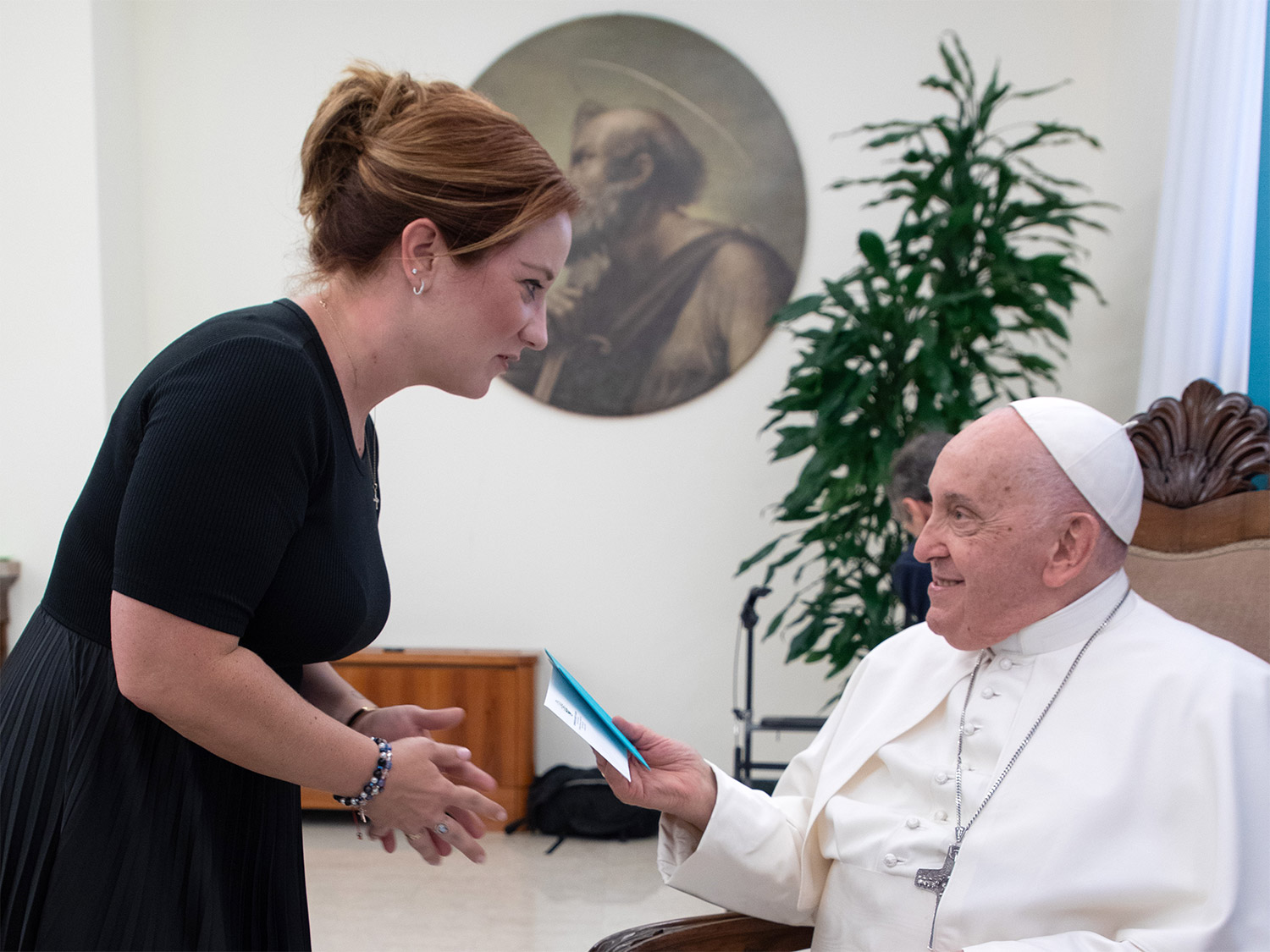
All photos courtesy of Scholas
“I had a private audience with him, and we spoke for about 30 minutes. We talked about climate change, immigration, the importance of the arts and so much more. He is such an intelligent and humble human being. To be in his presence is beyond words,” said Horvath.
Like Horvath, the program’s exceptional Youth Ambassador for Scholas USA, Talei Fernández, has also met twice this year with the Pope. The daughter of Giselle Fernández, Talei impressed representatives from Scholas and the Vatican with her intelligence, poise and willingness to speak up about issues confronting her age group, ranging from cyberbullying to racism.
When asked if she would like to be the country’s first Youth Ambassador, Talei admitted she was a little surprised.
“I said, ‘You do understand that I’m Jewish, right?’ But it didn’t matter to them, because it is an interfaith program. So here I am, an adopted kid from Guatemala who is Jewish, but I told them I would love to take this on,” she told the Courier.
Talei has also met twice with the Pope in connection with Pelota de Trapo. The first opportunity took place last August, during the World Youth Day conference in Portugal attended by thousands of young people. There, she met with and exchanged ideas with other youth ambassadors from around the world.
When it came time to meet the Pope in person, Talei found herself in tears.
“I was crying when he came into the room. You can feel the holiness and kindness that radiates from him. I was so nervous. I introduced myself and said I was so honored to be given this position,” she recounted.
Talei was picked to present the Pope with an actual pelota de trapo for him to sign. She then brought the ball back and delivered it to the Los Angeles Board of Supervisors on Aug. 13. That day, thanks to a motion by Horvath, was declared Pelota de Trapo Day in Los Angeles County.
Pelota de Trapo programming began in earnest in November, when some 80 students from nine Los Angeles schools took part in a pilot program. The young people came together to discuss issues of importance to them, including mental health, addiction and immigration. They also shared ideas about how they can make a difference in tackling those tough issues in their communities.
Horvath, who attended, was impressed with the manner in which the young people jumped right in to pose solutions for “adult problems” that policymakers consistently find challenging. Talei, too, came away with strong impressions.
“I’m an immigrant, and I know that I have been given the world. Listening to these kids, I think that my life could easily have been like theirs. If there is one thing I’d like people to know, it’s that this program has the power to change lives. I will do anything for this organization. I’m so honored to be able to play a role,” she said.
That role continued during Thanksgiving week. Talei and her mom were part of a delegation of Pelota de Trapo supporters invited to visit Rome and Vatican City. The group also included Horvath, the Mayor Pro Tem of West Hollywood John Erickson, LA City Councilwoman Monica Rodriguez, Sarowitz, as well as representatives from LA84.
In Rome, the visitors were invited to the Scholas Headquarters, where they learned about the organization’s global work. The next day, they met at the Vatican with the Pope. During the hour-long meeting, the Pope shared his vision of bringing together young people from different communities. He also answered questions on a range of topics that included climate change, the conflict in Gaza, to LBGTQ rights.
Talei presented the Holy Father with a painting created at the San Fernando Valley Refugee Children’s Center, where she volunteers.
“I brought a painting that the kids at the Center made because it represents what Pelota de Trapo is all about, connecting everyone of all colors and backgrounds. It said, “Somos Familia,” which means “We’re all family.” It doesn’t matter where we’re from,” said Talei.
The Pope’s face lit up upon receiving it.
Abaunza, who put the Thanksgiving delegation together, recalled many of its special moments.
“I think really what everyone experienced was the fact that he’s very concerned about youth and what they’re going through now. We know sports is a great equalizer and that is why he started this program.”
She added, “We actually all got a chuckle because we asked the Pope what position he played in soccer as a young man. He said he was only good as a goalie,” said Abaunza.
Goalies, of course, must be adept at facing challenges from every angle.
At the moment, Pelota de Trapo is meeting the challenges that come with the launch of any new charitable program. Raising awareness—and funds—are primary concerns at the moment, said Barreneche.
She has followed the Pope from Buenos Aires to Rome and has now relocated to Los Angeles to introduce Scholas and Pelota de Trapo here. Already, she laid some important groundwork, holding ZOOM meetings with LA County mayors, including Mayor Dr. Julian Gold. She has also met with representatives from the Church of the Good Shepherd High School in Beverly Hills.
“We would love to involve more schools in Beverly Hills,” said Barreneche.
In the meantime, the next county-wide Pelota de Trapo program is expected to take place in April. Horvath is excited about future opportunities in tandem with the LA Unified School District, county and city parks and recreation departments and other agencies.
She recalled in particular that the Pope kept repeating the Spanish word “harmonia,” or harmony during their meetings.
“He said that the goal is not to erase our differences and try to make everyone the same. The goal is to try to find ways for all these diverse communities to build bridges together. That was profound, and it is what this program of encounter embodies. If we’re doing our jobs right, that’s what we should be doing throughout Los Angeles.
She added, “The holidays are a time to reflect on this message. Every faith has a path toward harmony. In this moment, there are things that can unite us.”
For more information on Scholas and Pelota de Trapo, visit www.scholasusa.org or email info@scholasusa.org.



